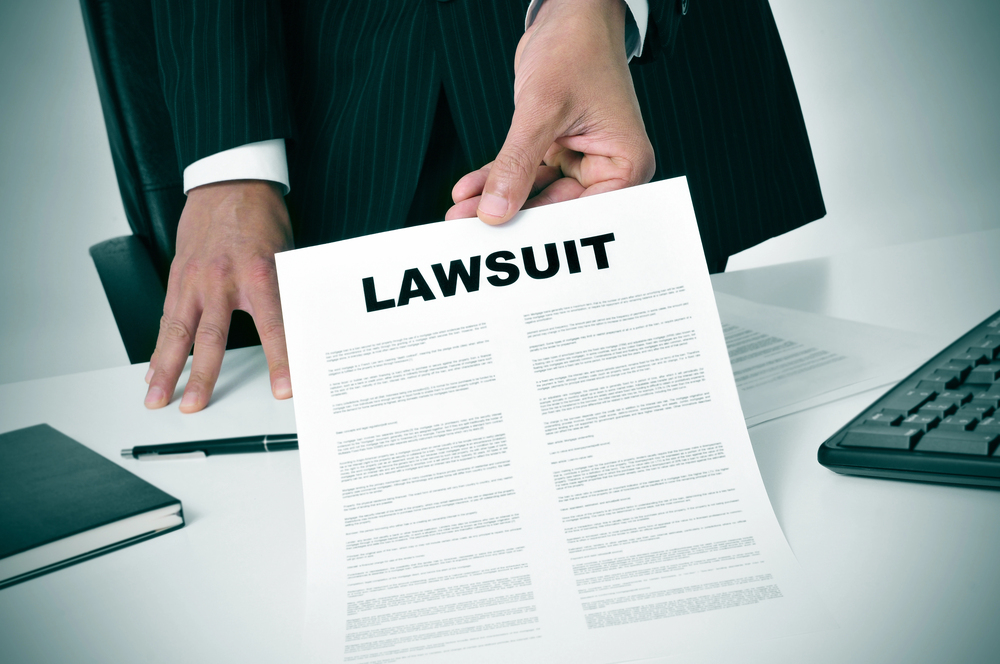Now Reading: Accident Claim vs. Lawsuit: Which One Are You Filing?
-
01
Accident Claim vs. Lawsuit: Which One Are You Filing?

Accident Claim vs. Lawsuit: Which One Are You Filing?
You have a lot on your mind after a car accident. You’re probably dealing with vehicle damage, that’s if your car isn’t totaled. Injuries may also be present, which means tons of medical bills. This is often only the start of your list of damages.
Let’s face it. The last thing you want to think about is whether you’re filing an accident claim or a personal injury lawsuit. However, understanding the difference between an accident claim and lawsuit can be key if you want to recover compensation.
What is a Car Accident Claim?
The terms claim and case are often used interchangeably, and this also applies to lawsuits. While a case and lawsuit are about the same, a claim is something completely different. So, what is an accident claim?
A claim is a legal action you typically take after an accident. You typically go through the claim process before filing a lawsuit. A claim isn’t heard in civil court so you don’t need to worry about sitting through a trial. Instead, you’re working directly with the at-fault party’s insurance adjuster.
The insurance adjuster decides if your claim is approved or denied. The insurance adjuster can also request negotiations to try and reach an agreeable settlement.
The Claim Process
The process for filing a car accident claim is pretty simple. The confusion usually comes in when you’re determining liability. However, this isn’t an issue at the start of the legal process if the accident occurs in New York, which is because New York is a no-fault insurance state.
All drivers file a claim with their insurance provider. Your insurance is responsible for covering up to 80% of your medical and property damage costs. Your insurance may even cover some of your lost wages.
Since you’re filing the claim with your insurance provider, you don’t have to worry about proving negligence.
Potential Benefits and Disadvantages of Filing an Accident Claim
Filing an accident claim has its advantages, even if you live in an at-fault insurance state. Yes, this means you must prove the other driver is negligent, but this doesn’t take away from the potential benefits.
Filing a claim is usually cheaper than going to court with a lawsuit. With a claim you’re not paying court costs and other fees. These costs can quickly add up and eat away at your potential compensation. You may also be able to get rid of attorney fees with an accident claim.
However, this doesn’t mean it’s a good idea to skip retaining legal counsel. A personal injury attorney can provide invaluable assistance and guidance, especially if you need to prove negligence. Another benefit of filing an accident claim is you receive compensation faster than when you go through the courts.
You can run into a couple of drawbacks with an accident claim. Sometimes, you need to file a lawsuit to get the insurance company’s attention. The threat of a lawsuit can be enough to bring the insurance company to the negotiating table. You may also get a better result letting a judge or jury rule on your claim. Just remember every accident claim is different and what applies to one may not be in your best interests.
What is a Lawsuit?
Usually, a lawsuit is your next step when you can’t reach a fair settlement with the insurance company you have a policy with.
However, you can file a lawsuit and skip the claim process, which is common when gross negligence is a factor in your accident. Gross negligence is a little different than simple negligence. Gross negligence applies when the defendant knowingly or willfully acted in a manner to cause harm.
Something else to consider before deciding to file a lawsuit is your state’s insurance laws. When no-fault insurance rules apply, you usually need to file a claim before the lawsuit. The lawsuit seeks to recover compensation for damages not taken care of by your insurance provider. If gross negligence is a factor, no-fault insurance laws may let you move straight to a lawsuit.
A lawsuit is filed in civil court by your attorney. Yes, you’re going to need an attorney to handle the legal process. There are filing deadlines to meet, along with other legal processes. While lawsuits tend to be a lengthy process often lasting for months and occasionally years, sometimes, this is your best option for recovering compensation.
The Process for Filing a Lawsuit
The process for filing a lawsuit typically starts by sending the insurance company and/or at-fault driver a letter of intent. This is a legal requirement and notifies the defendant of your intention of filing a lawsuit. From there, your attorney keeps up with the filing deadlines, and there can be a lot of them.
The judge will probably order you into mediation. This is another term for negotiations. If mediation fails you set a court date and everyone gets ready for trial.
Potential Benefits and Disadvantages of Filing a Lawsuit
Deciding to file a lawsuit usually means you’re ready for a rather lengthy legal process. Yes, this can be one of the potential downsides. However, allowing a neutral third party like a judge or jury to decide your case can have advantages. You’re more likely to receive the full value of your claim. An insurance adjuster will try to reduce your claim’s value.
A lawsuit also allows you to recover non-economic damages. These are things like your pain and suffering. Your no-fault insurance doesn’t cover non-economic damages. The only way to receive compensation is with a lawsuit.
Something to consider is the potential costs of a lawsuit. Court costs and filing fees can add up. Talking to your attorney before filing the lawsuit can give you a better idea of the potential costs.
Which Legal Option is Right For You?
Sometimes you don’t have an option. You start with a claim and move on to a lawsuit if you can’t reach an agreement with the insurance company. Other times, you can choose either option.
So, what’s the best move for your accident claim? This is something only you and your attorney can decide. But now that you have a better understanding of the two legal terms, it should be easier to make the right decision.










